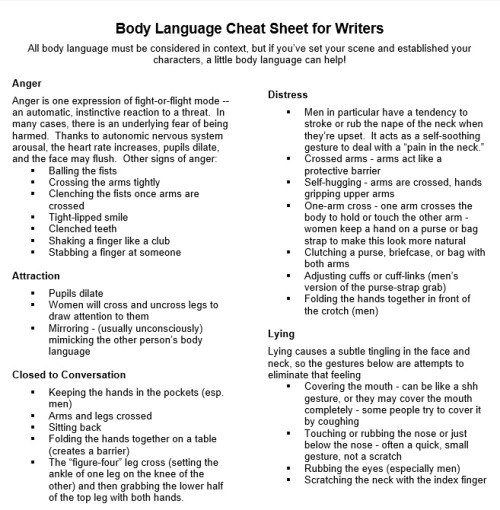Justanothergirlsblog - =A Weird Girl=

More Posts from Justanothergirlsblog and Others
“Either write something worth reading or do something worth writing.”
— Benjamin Franklin



“I am a day dreamer and a night thinker.”
— Unknown

How to Set a Creative Goal
I'm going to be blunt here: a lot of creative people tend self-sabotage by giving themselves goals that are (1) not healthy and (2) completely unrealistic. I know because that used to be me.
I like to lead by example, so I'm going to give you my easiest, quickest, most successful guide for how to set your goal; regardless of whether you want to write a novel, edit said novel, pick up drawing, or learn an instrument.
1 - A Matter of Time
Ask yourself the following question:
"What is the least amount of time I can spend on this project every day?"
You read that right. Not "the most time" or "what you can spend on average." We're talking LEAST here. What is the least amount of time you can spend every day? Two hours? One hour? Twenty minutes? That's good, and that's enough.
Take it from someone who's been doing this for a while, who's made all the mistakes, and who's had to learn and re-learn this:
Consistency is Power.
The person who consistently works on their passions, every day, will not only grow faster, and finish more things, but also just be happier.
I know our human brain hates to wait; we want things to be ready yesterday, we want to see growth in a matter of minutes, but this is just not how life works. Being impatient only leads to burn out, take it from me. I learned that the (very) hard way.
So, again, ask yourself the question above and consider the LEAST amount of time you can spend on your craft every day.
Got it? Good. This is your goal. Now comes the hard part.
2 - The Making of a Habit
You may think that working on something only 50 minutes a day is not enough to actually get better, but that's actually how I practiced drawing. And you've all seen how far I've come. That's consistency, baby—but that isn't the only benefit of doing something every day!
The more you teach your brain to do something the less friction there is whenever you want to do said thing. It's just science. Writing can seem daunting, scary even, but the only way to change that is by consistently facing the blank page.
It gets easier. It'll never be automatic, you're never going to write a book in one sitting, but it is going to get less hard. Less harrowing. Some days you'll sit down and your allotted time will fly by.
It's wonderful.
That being said, the target is to work on your project everyday—because that'll help you make it into a habit faster—but don't stress out if you miss a day. Life happens. Whatever you do, try to miss as few days as possible. Keep a calendar, post about it on social media, tell people that you're challenging yourself. They'll take you more seriously.
3 - Appreciate Life
Your creative projects shouldn't impede your life, they should be a part of your life. That is why we practice them daily, and we spend a healthy amount of time on them. If 2020 taught me anything, it is that you have to take care of yourself. We are a system, a machine with many components, and when you don't take care of one the whole suffers.
That's why it bears repeating.
The best creative goal is one that you can achieve consistently with ease, every day, so that it can function as a part of your life.
That's the trick right there. I can tell you from experience that I used to think my writing, and my art, where separate to the act of living. I did those things, and then I did the living. And I shouldn't have to tell you, but that was such a mistake.
Spending a little bit of time on your passions every day is good enough.
And if you think it's not, remember that I don't give advice I don't follow myself. So far this year I've written AND edited two novels. All without burning myself, without rushing, and while taking the time to appreciate life.
Take that for what it's worth. 🐰🌻
how to determine whether your characters are developed enough or not
There’s a fool proof way to determine whether your characters has been developed enough or not. Ask yourself:
‘’Would my story still work if I removed this character from it?’‘
If your answer is:
“No, my story wouldn’t work, because this character is intertwined into the story to such an extent that if I were to remove them, the story is feels incomplete, and certain storylines won’t work.”
You’ve got yourself a well developed character.
If you can’t remove a character without causing inconsistencies to the plot, you’ve got a character that is dimensional enough to work on their own.
Hence, by removing said character, you’re removing a fundamental piece of the puzzle, which in turn forces certain storylines to be incomplete.
But let’s say the answer to the question above is yes.
Let’s say, that you could easily remove a certain character from your story, without the risk of screwing with any current storylines. Let’s even go as far as saying that you could replace said character with another character, and it still wouldn’t make a difference to the story.
In a scenario like this, your character has not been developed enough to stand their own ground. If you can give your character’s storyline to another character, or simply replace them with another, without noticing a difference in your story, you need to go back to the drawing board.
Your character is not fleshed out enough. They don’t bring personality to your story, because their departure from it is not noticeable.
For a character to be dimensional, or developed properly, their loss needs to recognized, and if they’re not part of the narrative, the story should feel incomplete, because a fundamental piece of the puzzle is missing.
“Dacă un scriitor se îndrăgostește de tine, vei deveni nemuritor, căci veşnic vei trăi în rândurile sale.”
—
“Good books don’t give up all their secrets at once.”
— Stephen King


Body Language Cheat Sheet for Writers
As described by Selnick’s article:
Author and doctor of clinical psychology Carolyn Kaufman has released a one-page body language cheat sheet of psychological “tells” (PDF link) fiction writers can use to dress their characters.
-
 criedwoolf liked this · 2 years ago
criedwoolf liked this · 2 years ago -
 snow1088 liked this · 3 years ago
snow1088 liked this · 3 years ago -
 imfine1920 reblogged this · 3 years ago
imfine1920 reblogged this · 3 years ago -
 imfine1920 liked this · 3 years ago
imfine1920 liked this · 3 years ago -
 im-glitzer-versunken reblogged this · 3 years ago
im-glitzer-versunken reblogged this · 3 years ago -
 heattwavves liked this · 3 years ago
heattwavves liked this · 3 years ago -
 carlyquotes reblogged this · 3 years ago
carlyquotes reblogged this · 3 years ago -
 im-glitzer-versunken liked this · 3 years ago
im-glitzer-versunken liked this · 3 years ago -
 hellol0sers liked this · 3 years ago
hellol0sers liked this · 3 years ago -
 the-blackest-spider reblogged this · 4 years ago
the-blackest-spider reblogged this · 4 years ago -
 foreverlovex0x liked this · 4 years ago
foreverlovex0x liked this · 4 years ago -
 neksii3-blog liked this · 4 years ago
neksii3-blog liked this · 4 years ago -
 haleybino liked this · 4 years ago
haleybino liked this · 4 years ago -
 al-fadagh liked this · 4 years ago
al-fadagh liked this · 4 years ago -
 ineffableinsouciance liked this · 4 years ago
ineffableinsouciance liked this · 4 years ago -
 doesitreallymattertolive liked this · 4 years ago
doesitreallymattertolive liked this · 4 years ago -
 refaig reblogged this · 4 years ago
refaig reblogged this · 4 years ago -
 dracosleftbigtoe liked this · 4 years ago
dracosleftbigtoe liked this · 4 years ago -
 dracosleftbigtoe reblogged this · 4 years ago
dracosleftbigtoe reblogged this · 4 years ago -
 sumitp liked this · 4 years ago
sumitp liked this · 4 years ago -
 solitudeishard liked this · 4 years ago
solitudeishard liked this · 4 years ago -
 rosewateranyone liked this · 4 years ago
rosewateranyone liked this · 4 years ago -
 dandeelionn reblogged this · 4 years ago
dandeelionn reblogged this · 4 years ago -
 dandeelionn liked this · 4 years ago
dandeelionn liked this · 4 years ago -
 ryamthelion reblogged this · 4 years ago
ryamthelion reblogged this · 4 years ago -
 justsometransgirl liked this · 4 years ago
justsometransgirl liked this · 4 years ago -
 youreivygrows liked this · 4 years ago
youreivygrows liked this · 4 years ago -
 leannex90x reblogged this · 4 years ago
leannex90x reblogged this · 4 years ago -
 purpleangelsele liked this · 4 years ago
purpleangelsele liked this · 4 years ago -
 uncertainmanmind liked this · 4 years ago
uncertainmanmind liked this · 4 years ago -
 justsomeguyderogatory liked this · 4 years ago
justsomeguyderogatory liked this · 4 years ago -
 allesdurchsehnsuchtverbunden reblogged this · 4 years ago
allesdurchsehnsuchtverbunden reblogged this · 4 years ago -
 lethalfumes liked this · 4 years ago
lethalfumes liked this · 4 years ago -
 vishalguptasposts liked this · 4 years ago
vishalguptasposts liked this · 4 years ago -
 fryrye34 liked this · 4 years ago
fryrye34 liked this · 4 years ago -
 snuggiepug liked this · 4 years ago
snuggiepug liked this · 4 years ago -
 thehauntedvoid liked this · 4 years ago
thehauntedvoid liked this · 4 years ago -
 justanothergirlsblog reblogged this · 4 years ago
justanothergirlsblog reblogged this · 4 years ago -
 justanothergirlsblog liked this · 4 years ago
justanothergirlsblog liked this · 4 years ago -
 your-thespian-dumbass reblogged this · 4 years ago
your-thespian-dumbass reblogged this · 4 years ago -
 your-thespian-dumbass liked this · 4 years ago
your-thespian-dumbass liked this · 4 years ago -
 crystal-27 liked this · 4 years ago
crystal-27 liked this · 4 years ago -
 helgushe liked this · 4 years ago
helgushe liked this · 4 years ago -
 theronhawke liked this · 4 years ago
theronhawke liked this · 4 years ago -
 crimson-double-chin reblogged this · 4 years ago
crimson-double-chin reblogged this · 4 years ago -
 thegirlfromafar22 liked this · 4 years ago
thegirlfromafar22 liked this · 4 years ago -
 samo-da-si-sa-mnomm liked this · 4 years ago
samo-da-si-sa-mnomm liked this · 4 years ago

I'm just a weird girl who likes to read about history, mythology and feminism.
207 posts